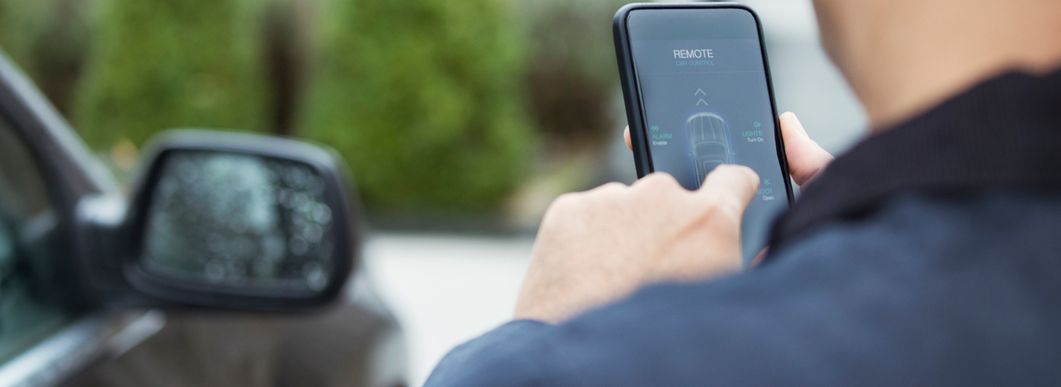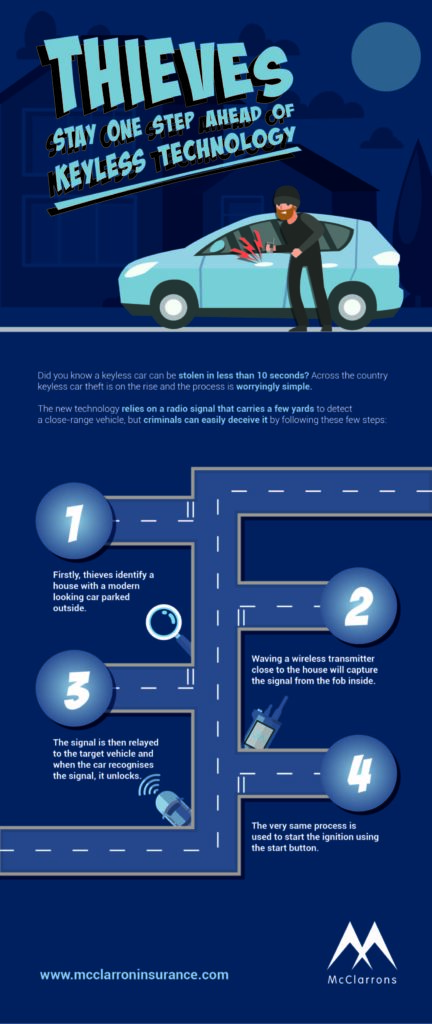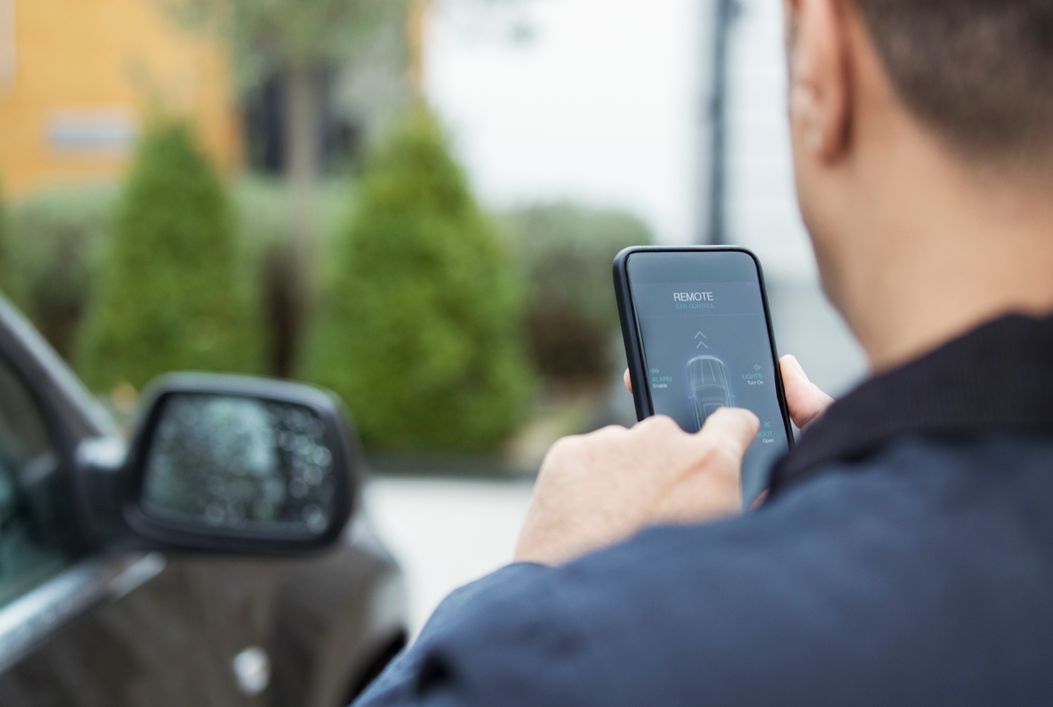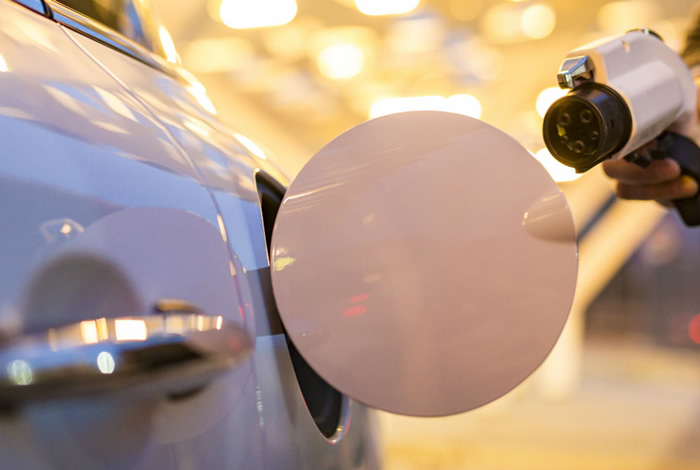New cars are becoming extremely technical, with keyless car entry systems often being fitted. However, this is leaving them exposed to theft via their keyless remotes which contain a radio transmitter which can open cars within a few yards, as well as being able to start their engines. This is believed to have contributed to the rise in car theft, with a 48.7% increase, over the last 5 years,* in the number of cars being stolen having been seen.
Whilst manufacturers have, over the years, made improvements to anti-theft systems to try and deter theft, the thieves too have adapted. Instead of hotwiring cars, they are gaining access in a more technical and faster manner.
What is keyless car theft?
It is becoming worryingly simple for thieves, who have discovered many methods of breaking into vehicles that have keyless entry systems, taking them as little as 60 seconds to complete a theft. Below, we highlight some of the methods used.
Relay theft
Here, thieves wave an amplification device around the front of the owner’s house, whilst their partner stands against the car with a transmitter. If the key is close enough to the front of the house, the amplifier will pick up its signal, and amplify it to the transmitter. The car will then pick up the key signal, believing it is close, and unlocks the doors, allowing the thieves to gain access to the car and start the engine.
Signal blocking
When owners lock their car doors, thieves are using devices which works on the same radio frequency as the key fobs, working to block the signal that locks the car door, leaving the car unlocked. Thieves target people in car parks, driveways and street parking and then use “key programming” techniques to start the engine. All new cars are manufactured with a standard diagnostic port and hackers have constructed devices which plug into them, giving them access to the vehicle’s software to program a blank key fob. This is an extremely quick and cheap way for thieves to steal cars.
Close range testing
Close range testing works if a car is parked too close to the house – the key fobs may be in close enough proximity for thieves to open the car. However, here, thieves are unlikely to be able to start the engine and drive off as the key fob does need to be present before the engine starts. However, if thieves do fail to steal the car, it may still be left with a flat battery due to the electronic system being kept on standby.
How can you avoid keyless car theft?
Car theft usually happens during the night, in residential areas. We have listed some action points, below, which car owners can act on to help prevent car theft:
- Don’t forget the standard security measures – ensure the car is locked and try to keep the keys away from the doors and windows to avoid the Relay Theft or Close Range Testing system from working
- Using a steering wheel lock will make it harder for thieves and cost them time, meaning they will likely move on due to fear of being caught
- Purchasing a faraday (RFID) pouch or container for your keys can help block an amplifier from picking up your key’s signal
- Some cars allow you to turn the key’s signal off – check your car manual or contact the dealer to find out how
- Installing the latest software to your vehicle can make it harder for thieves to steal your car, as this adds extra security. Your car dealer will be able to assist with this.
Car manufacturers have started to introduce updated security measures to reduce theft of cars with keyless entry systems. For example, some manufacturers have added motion sensors into the key fobs; this detects when a key hasn’t moved for some time, which deactivates the fob so that it no longer transmits, stopping people from using Relay Theft and Close Range Testing methods. As soon as the key is moved again, you will be able to unlock the car.
Manufacturers have also invested billions into keeping ahead of thieves by inputting new software and developments to keep up to date and to make cars less vulnerable to these types of attacks.
If you have a high-value car that needs insuring or you’d just like some independent insurance advice, contact our dedicated Art & Private Clients team on 01653 697055 or by emailing enquiries@networkportfolio.co.uk/mcclarroninsurance.com. You can find out more about McClarrons Affinity, here.
*https://www.autoexpress.co.uk/car-tech/101890/how-to-avoid-keyless-theft























